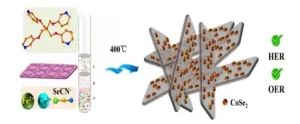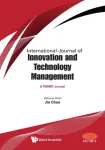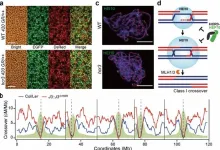(Press-News.org) Smaller class sizes in schools are failing to increase the resilience of children from low-income families, according to a study published in the peer-reviewed International Journal of Science Education.
Data on more than 2,700 disadvantaged secondary (high) school students shows that minimizing pupil numbers in classrooms does not lead to better grades. Reducing class sizes could even decrease the odds of children achieving the best results, say the study authors.
The quantity of teachers also does not increase the odds of pupils from the poorest backgrounds achieving academically, despite concerns over staff shortages in schools.
Instead, the researchers say that resilience is guaranteed by the quality of teachers such as those with high discipline standards and who use their expertise to improve learning.
The study authors, who looked at data from China and Japan, are now urging policymakers to invest more in high-quality teachers and not to waste resources on cutting down the number of children in each class.
“This study supports the view that the quality of teachers, rather than the quantity, is the primary guarantee of students’ resilience,” says lead author Professor Tao Jiang, of Taizhou University whose research team also included experts from his institution and other China-based universities Northwest Normal, and Southwest.
“Quality teachers who effectively used teaching methods and managed classroom discipline increased the odds that individuals became resilient students.
“On the other hand, emphasizing the reduction of class sizes in schools may not benefit resilience. Smaller classes either had no relevance to resilience or were disadvantageous for resilience.
“Excessive emphasis on reducing class sizes is unnecessary, as it is detrimental to the emergence of students with high levels of resilience. Instead of allocating financial resources to reduce class sizes, it would be more effective to invest in providing high-quality science teachers.”
Academic resilience is defined as an individual’s ability to resist adversity and do well in school. It’s not fixed, and therefore can be improved, and is linked to what happens in schools and classrooms.
The authors of this study set out to identify the qualities and characteristics of 1,594 disadvantaged science students in Japan and 1,114 in the Macau region of China. Ages ranged from 15 to 16 years approximately and class size from 15 pupils (or fewer) to more than 50.
The participants were grouped into low, medium, or high-level resilience. The researchers looked at what classroom factors, school resources and school culture increased the odds of being in the high-level group.
All students in the study had participated in the 2015 Programme of International Student Assessment (PISA), an international questionnaire-based survey. PISA measures a pupil’s ability to use their reading, mathematics, and science knowledge.
Teacher discipline and support levels were among the many issues assessed by PISA. Pupils were also scored on motivation and how anxious they became during exams.
Results showed overall that a third of students displayed high-level resilience, a quarter low, and the rest medium.
High-resilience students were very positive towards school, science, and their future careers. They also dedicated more time to learning science than others but did experience anxiety about exams.
Science teachers and their teaching methods ‘play a crucial role’ in building students’ resilience, according to the authors. The findings show that these students benefited from classroom discipline, teacher-directed instruction, inquiry-based teaching, and teacher support.
In Japan, the most robust predictor of high-level resilience was inquiry-based teaching, while in Macau, it was teacher-directed instruction.
As for the impact of class size, smaller classes either had no impact on resilience such as in Macau or had a negative effect as in Japan. Conversely, an increase in class size by just one rank raised the odds of disadvantaged pupils in Japan attaining the best rather than the lowest grades by 1.2 times.
Other findings from the study show that misbehavior in the classroom or school in general undermines resilience.
The messages from the study for teachers include the need to guide pupils to conform to rules, to maintain discipline and prepare lessons in line with the needs of students.
The study did not analyze changes in how classrooms are managed now compared with before the pandemic. On this basis, the authors suggest further studies are needed on how COVID-19 has affected teaching in the context of student resilience.
END
Small class sizes not better for pupils’ grades or resilience, says study
2024-03-08
ELSE PRESS RELEASES FROM THIS DATE:
Two-dimensional bimetallic selenium-containing metal-organic frameworks and their calcinated derivatives as electrocatalysts for overall water splitting
2024-03-08
Transition metal selenides have been considered to be a good choice for electrocatalytic water splitting. In addition, Metal-organic frameworks (MOFs) have been used to make catalysts with good electrocatalytic capabilities. Traditionally, the MOF-derived selenides are produced via the self-sacrificing MOF template methods. However, this strategy is high-energy consuming, and it is difficult to precisely control the structure and component homogeneity of the product during pyrolysis.
A research group of Wang-ting Lu, Fan Yu, and Yun Zheng ...
An increase in the number of extreme cold days in North China during 2003–2012
2024-03-08
How extreme weather and climate events change is an intriguing issue in the context of global warming. As IPCC AR6 points out, cold extremes have become less frequent and less severe since the 1950s, mainly driven by human-induced climate change. However, cold extremes could also exhibit robust interdecadal changes at regional scale.
A recent study by researchers from the Institute of Atmospheric Physics, Chinese Academy of Sciences, presents robust interdecadal changes in the number of extreme cold days in winter over North China during 1989–2021, and the findings have been published in Atmospheric and Oceanic Science Letters. ...
Open creativity: Increased creativity due to network relationships
2024-03-08
This paper's objective is to show that the network of frequent relationships that is established between agents in coworking environments, through weak ties, increases the generation of ideas. Thus, the present work argues that collaborative spaces can expand individuals' creativity, as they constitute a social hub for exchanging experiences and visions between individuals from different social and professional backgrounds [Blagoev et al. (2019)]. Through frequent relationships and weak ties, these social connections allow individuals to access different levels of insights and inspirations that make it possible to ...
Reptile roadkill reveals new threat to endangered lizard species
2024-03-08
The chance sighting of a dead snake beside a sandy track in remote Western Australia, and the investigation of its stomach contents, has led Curtin University researchers to record the first known instance of a spotted mulga snake consuming a pygmy spiny-tailed skink, raising concerns for a similar-looking, endangered lizard species.
Lead researcher Dr Holly Bradley from Curtin’s School of Molecular and Life Sciences said the discovery of the partially digested pygmy spiny-tailed skink within the snake had implications for the vulnerable western spiny-tailed skink species.
“Found about 300km east ...
Mutation solves a century-old mystery in meiosis
2024-03-08
Movies such as ‘X-Men,’ ‘Fantastic Four,’ and ‘The Guardians,’ which showcase vibrant mutant heroes, have captivated global audiences. Recently, a high-throughput genetic screening of meiotic crossover rate mutants in Arabidopsis thaliana garnered the interest of the academic community by unraveling a century-old mystery in the life sciences.
A research team, consisting of Professor Kyuha Choi, Dr. Jaeil Kim, and PhD candidate Heejin Kim from the Department ...
How a common food ingredient can take a wrong turn, leading to arthritis
2024-03-08
A University of Colorado Department of Medicine faculty member says she and her colleagues have identified the means in which bacteria in the digestive system can break down tryptophan in the diet into an inflammatory chemical that primes the immune system towards arthritis.
The research was co-authored by Kristine Kuhn, MD, PhD, Scoville Endowed Chair and head of the CU Division of Rheumatology. Several of her division colleagues collaborated on the paper, which was published in February in the Journal of Clinical Investigation.
Tryptophan is an essential amino acid found in many protein-rich foods, including meats, fish, dairy products, and certain seeds and nuts. It has many uses in the ...
Children with ‘lazy eye’ are at increased risk of serious disease in adulthood
2024-03-08
Adults who had amblyopia (‘lazy eye’) in childhood are more likely to experience hypertension, obesity, and metabolic syndrome in adulthood, as well as an increased risk of heart attack, finds a new study led by UCL researchers.
In publishing the study in eClinicalMedicine, the authors stress that while they have identified a correlation, their research does not show a causal relationship between amblyopia and ill health in adulthood.
The researchers analysed data from more than 126,000 participants aged 40 to 69 years old from the UK Biobank cohort, who had undergone ocular examination.
Participants ...
New treatment could transform the mental health of children with epilepsy
2024-03-08
A new psychological treatment for children with epilepsy, developed by a UCL-led team of scientists, has been shown to reduce mental health difficulties compared to standard care, a new study finds.
Mental health problems such as worries, low mood and behaviour problems are more common in children and young people with brain conditions such as epilepsy, than in the general population – with up to 60% of those with epilepsy having associated mental health disorders and many having more than one mental ...
Is obesity passed down the generations? Individuals are much more likely to be living with obesity in middle age if their parents were living with obesity, Norwegian research finds
2024-03-08
Is obesity passed down the generations? Individuals are much more likely to be living with obesity in middle age if their parents were living with obesity, Norwegian research finds
Embargo: 2301H UK time Thursday 7 March
*This is an early press release from the European Congress on Obesity (ECO 2024) Venice 12-15 May. Please credit the Congress if using this material*
Individuals have six times the odds of living with obesity in middle age if both their parents lived with obesity at that age, ...
African American patients on Medicaid are less likely to undergo surgery for carpal tunnel syndrome
2024-03-07
Waltham — February 21, 2024 — African American patients with carpal tunnel syndrome (CTS) are less likely to receive surgical treatment, reports the March issue of Plastic and Reconstructive Surgery®, the official medical journal of the American Society of Plastic Surgeons (ASPS). The journal is published in the Lippincott portfolio by Wolters Kluwer.
"Our study shows significant race- and gender-related differences in treatment choices among Medicaid beneficiaries with CTS," comments ASPS Member Surgeon Rachel C. Hooper, MD, of University of Michigan, Ann Arbor. ...




